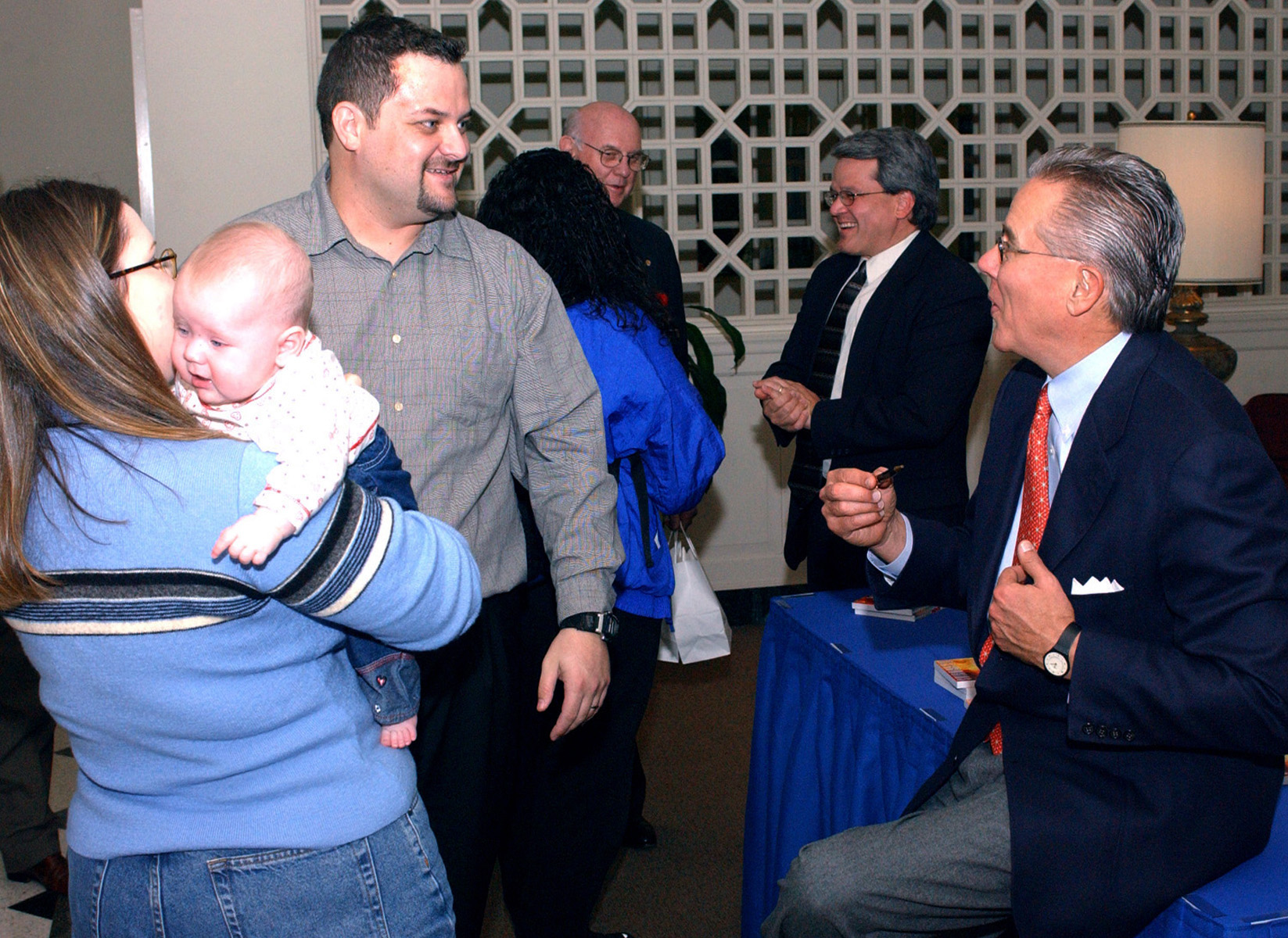
FORT WORTH, Texas (BP)–O.S. Hawkins grew up in a picture-perfect community on the east side of Fort Worth, Texas, where citizens felt no need to lock their doors at night and “Ozzie and Harriet” was a popular television program. The world is different today, Hawkins said, evidenced by its barred windows and reliance on “Ozzy and Sharon” Osbourne as models for the nuclear family.
Speaking in chapel at Southwestern Baptist Theological Seminary Nov. 19, Hawkins, president of the Southern Baptist Annuity Board, recalled that in 1952 “the church was the most respected organization in the city or county, and a pastor was revered and had great influence on public affairs.” Much has changed, he said, making the culture that ministers are called to engage “incredibly different.”
Political correctness, he said, has drowned out discussions about the biblical model of the family, while pluralistic compromise has supplanted claims of the exclusive nature of salvation in Christ. The shift in cultural norms prompted Hawkins to write his latest book, “Culture Shock: Advice from Daniel for Addressing Today’s Culture.”
Hawkins, a Southwestern Seminary graduate, told seminarians that American culture today is different from the culture of his childhood in five respects. In 1952 relationships were key, he said, because the home was an “established institution.” Soldiers returning from World War II were “thankful that God had saved the nation,” and they instilled family values in their children, Hawkins said. Furthermore, almost all families were traditional models of the nuclear family. “The whole time I was growing up I only knew of one single-parent family,” he said.
Today, Hawkins said, millions are searching in vain for meaningful relationships in life, and especially relationships with male authority or father figures.
In 1952 Americans were easily satisfied, Hawkins said. “We didn’t have a whole lot but we didn’t know we didn’t have a lot.”
Today people want immediate gratification, Hawkins said. People live “in a microwave world” where they want to quickly move from desire to acquisition. The “give it to me now” attitude is particularly destructive, he said. Culture in 1952 also emphasized personal responsibility and moral absolutes. Today people want something for nothing and have no ethical moors. “When I grew up there was no welfare system like there is today. If you wanted something you worked for it, but today [people] want something for nothing … and they’ve been trained for that from both ends of the economic spectrum.”
Most disheartening, however, is the nation’s lack of respect for God’s standards, Hawkins said. He recalled seeing the Ten Commandments on a classroom wall and Gideons distributing Bibles on campus while he was in elementary school. But two generations later the Ten Commandments have been removed from the classroom walls and Gideons are forbidden from stepping foot in the schoolyard.
“There are no moral absolutes today,” Hawkins lamented, and the lack of absolutes makes it impossible for people to fulfill the “quest of the heart for guilt-free living.” In 1952 parents also raised children in homes nicer than the homes in which they were raised, Hawkins said. Today the current generation is the first not raised in homes nicer than those owned by their grandparents. “They are thirsty for prosperity, but they just don’t know if they are going to be able to attain it,” Hawkins said.
The problems associated with this disenfranchised culture make the communication of the gospel difficult, Hawkins said. Some ministers develop the idea of compromising the gospel message in order to make it more palatable, he said. Others condone the behavior of the “get rich quick,” “take all you want” lifestyle. Some even condemn the culture, “pounding a little harder on their Bible and pointing their finger a little longer.” But these methods will not drive the truth of the message home, Hawkins said. Ministers, he said, must confront culture in love and show that the gospel is relevant.
Hawkins said that the Bible explains in Ephesians 1:7 that all of the desires of this generation can be fulfilled in Jesus Christ. “In him we have redemption through his blood, for the forgiveness of our sins, in accordance with the riches of God’s grace.”
— “In him,” Hawkins said, fulfills the need for relationship.
— “We have redemption” means that Christians have it now, satisfying the need for immediate gratification.
— “The forgiveness of our sins,” Hawkins said, is authentic, guilt-free living. “Guilt is not our foe, it is our friend. It prompts confession, and that is saying the same thing God says about our condition,” Hawkins said. After the confession of sin comes forgiveness, he said.
— “In accordance with the riches of God’s grace,” Hawkins said, satisfies the thirst for prosperity. “Notice that the text doesn’t say ‘out of his riches,’ but ‘according to his riches.'” Although much in culture has changed, Hawkins said that the condition of the human heart remains the same and can only be changed and fulfilled by Christ. “Though this world has different wants, it still has the same needs.”
Hawkins, formerly pastor of First Baptist Dallas, became president of the Annuity Board in 1998 and has made strides to secure the “vocational retirement” of Southern Baptist ministers and their spouses. While the board is the only SBC institution not to focus on the proclamation of the gospel, Hawkins said developing financial stability for ministers in retirement will result in the SBC “unleashing the largest army of volunteers for missions and evangelism in the history of the world.”
–30–
(BP) photo posted in the BP Photo Library at http://www.bpnews.net. Photo title: TALKING ABOUT THE FUTURE.

















